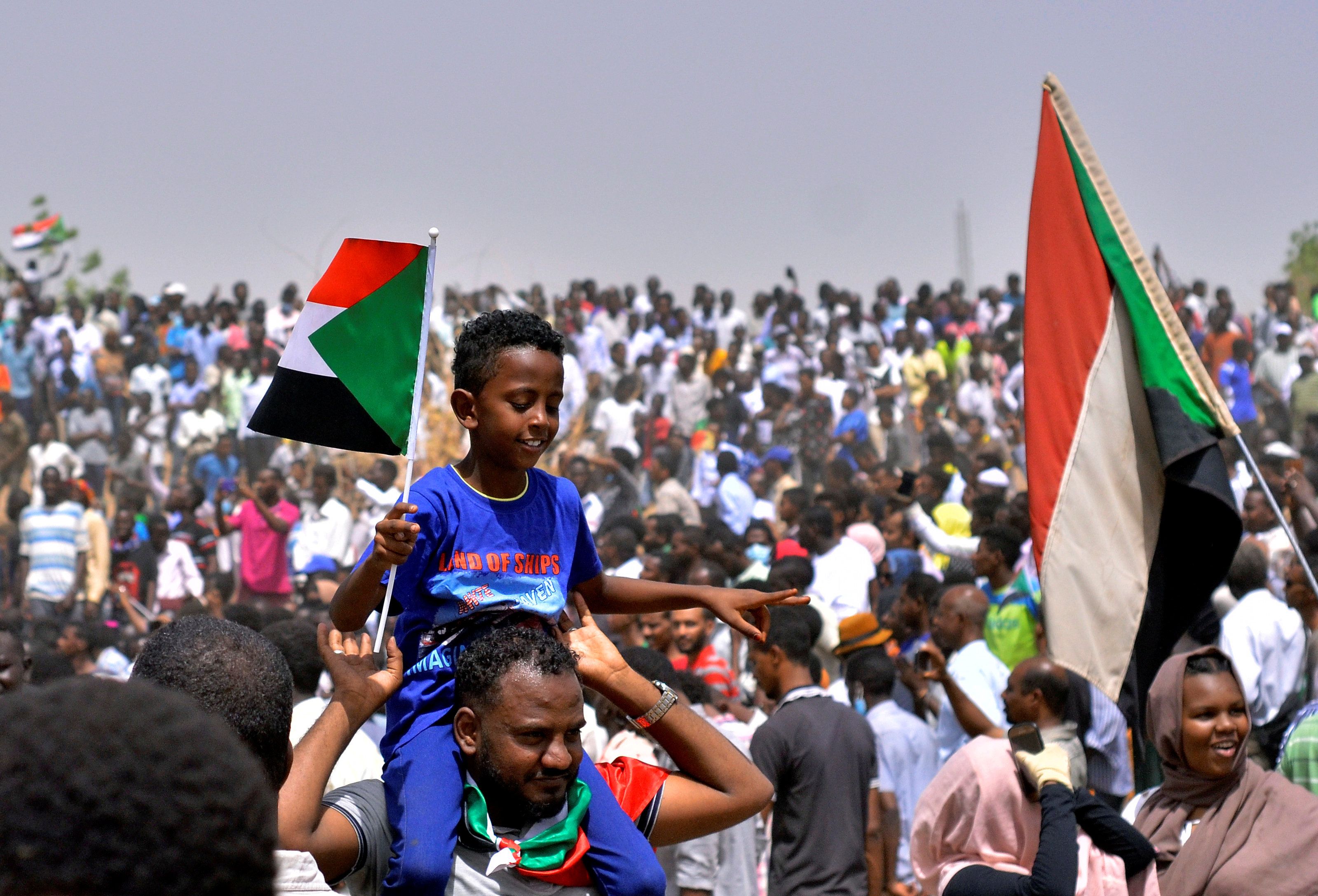3 months ago: Sudan's transition In August, GZEROchecked in on Sudan's former strongman Omar al-Bashir who had been put on trial for corruption after being deposed by mass protests against his three-decade long dictatorship. The trial is ongoing and has revealed damning details such as al-Bashir's receiving tens of millions in cash from the Saudi Crown Prince, but his years of alleged crimes against humanity have not been reckoned with, and there seems little chance of his facing justice before the International Criminal Court at The Hague. Meanwhile, Sudan's political transition is still in flux. The first post-Bashir cabinet, a joint civilian-military body, took office in September. It is supposed to oversee a three and a half year transition period until general elections. But this power-sharing arrangement, which preserves elements of the old guard, hasn't placated everyone. Hundreds of demonstrators took to the streets this month protesting the enduring influence of al-Bashir's allies in politics, and calling on the government to ramp up investigations into those who went missing when security forces brutally cracked down on protesters in the capital, Khartoum, in June. Now, as Sudan's economy teeters on the brink of collapse, the government is focused on getting Sudan removed from the US sponsors of terrorism list, which would open it up to investment and debt relief. The US says that could happen, but not immediately.
6 months ago: What comes next in the US-China trade war? Six months ago, the stakes of the ongoing US-China trade war peaked again when China, responding to a bout of US tariffs on Chinese goods, imposed retaliatory tariffs on $60 billion worth of American products, as we noted here. Not to be outdone, the Trump administration upped the ante again, responding with fresh tariffs of its own and threatening to extend its tariffs by December 15 to virtually everything America buys from China. But President Trump's inconsistent signals on tit-for-tat penalties have created confusion about what might come next. Last month, Presidents Xi and Trump said they were willing to sign a partial trade deal – a temporary truce– that would see the US roll back some tariffs in return for Beijing ending a freeze on purchases of some US agricultural products. But now, four weeks later, the talks are shrouded in uncertainty because of disagreements over what should be included in the final text. But even if a partial deal is reached that reverses the escalations of the past few months, the US and China will still be in tension over deeper issues, including China's support for state companies, its extortion of technology from American firms, and its bid to become the global leader in advanced technologies like 5G and artificial intelligence.
9 months ago: Nigeria's uninspiring election Back in February we contemplated the uncertainty surrounding Nigeria's upcoming elections – the first since a landmark peaceful transfer of power that had served as a model for the entire region. This spring, Nigerians reelected incumbent president and former military leader Muhammadu Buhari, who came away with 56% of the vote. The former military leader has attempted to rebrand himself as a "converted democrat" but oppressive tendencies have proven hard to give up. Since Buhari's reelection, repression of journalists has drawn increasing international concern. Buhari has failed to tackle allegations of corruption against his political allies, while using his anti-graft agenda to crack down on political opponents. Meanwhile, jihadist terror has spread across large swathes of the country, and the locally grown Boko Haram militant group has extended its reach. When Buhari recently departed for a personal overseas trip, believed to be for medical reasons, he refused to hand over temporary authority to his deputy, which many said violated the constitution. Nigeria's democracy is young and delicate. Buhari is testing its limits.
More For You
People attend a demonstration to demand the release of Venezuelan opposition politician Juan Pablo Guanipa, who has been re-arrested, in Maracaibo, Venezuela, on February 9, 2026.
The freeing and re-arrest of an opposition figure in Venezuela has become a snapshot of Venezuela’s small window for shifting to democracy.
Most Popular
Violence is once again scorching Nigeria. On Sunday, gunmen killed three people and took several hostages, including a Catholic priest, during an early morning attack in the northern state of Kaduna.
New international org just dropped #PUPPETREGIME
We’re moving toward a world where roads don’t just move traffic — they enable services and transactions. Mastercard is working with Volvo and the North Carolina Turnpike Authority on a pilot that explores in-vehicle toll payments without transponders, signaling how V2X connectivity can make infrastructure a platform for data and payments. This future of connected transportation aims to make travel safer, smoother and smarter. Read the full article here.
